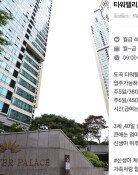Cheong Wa Dae points to “BBC” as security lever
Cheong Wa Dae points to “BBC” as security lever
Posted May. 18, 2021 07:29,
Updated May. 18, 2021 07:29
South Korean presidential Blue House Cheong Wa Dae is focusing on bio, battery, and semiconductor as the key agenda of the upcoming ROK-U.S. summit to be held on Friday. The government asked Samsung Electronics and other relevant companies to make new investments in the U.S. considering that the success of the summit depends on the three industries. The government’s strategy is to use the so-called BBC industries – bio, battery, and semiconductor chip – as levers to secure COVID-19 vaccine supply and cooperation in foreign affairs and security from the U.S.
U.S. President Joe Biden is focusing national capabilities on the supply chain revamp of advanced industries as a race between the U.S. and China for hegemony intensifies. It is fortunate that South Korean businesses have obtained competitiveness through preemptive investment in bio, battery, and semiconductor sectors in which the U.S. is putting efforts into strengthening alliances and building a new supply chain. The South Korean government, which has not been heavily involved in support for the BBC industries, should develop a new national strategy in order to reinforce the ROK-U.S. alliance and strengthen South Korean businesses’ standings in the global supply chain.
The U.S. – mainly the Department of Defense and the Department of State – is spending dozens of trillions of won on the semiconductor. Even the National Defense Authorization Act was amended in January this year to this end. China grew CATL into the world’s No. 1 battery manufacturer with financial aid and subsidies for electric cars. The U.S. and Chinese governments are boldly getting involved in supporting strategic industries. However, the South Korean government has not escaped from the outdated perspective of considering large companies as those subject to regulations regarding the concentration of economic power.
The South Korean government belatedly announced the ‘K-semiconductor strategy’ on Thursday after being held up due to the suspicions of favoring large companies. The government’s ‘K-battery strategy’ to be announced in the first half of this year is the same. Such measures are not enough to survive in the rapidly changing environments of global security and industries. Universities have not been able to increase the number of admitted students in the advanced technology sectors due to the 40-year-old Seoul Metropolitan Area Readjustment Planning Act. The Chemical Substances Control Act and 52-hour workweek regulations are obstacles to new development and production. The government should ease such regulations that are hindering the development of the BBC industries.
The government has been keeping a distance from businesses, as it views them as subjects for regulations and management. However, economy and security cannot be mutually exclusive when the international orders are reorganized around advanced industries. The role of businesses has become a major variable in terms of relationships with not only the U.S. and China but also other countries. The government and corporations should build an ongoing cooperation system to work as one and ponder national strategy. It should not be forgotten that the government and the business circles are meant to work together.
Headline News
- Med professors announce intention to leave hospitals starting Thursday
- Bridge honoring Sgt. Moon Jae-sik unveiled in Pennsylvania
- Chief of Staff Chung tells presidential secretaries to stay away from politics
- US FTC bans noncompete agreements
- N. Korea launches cyberattacks on S. Korea's defense companies







